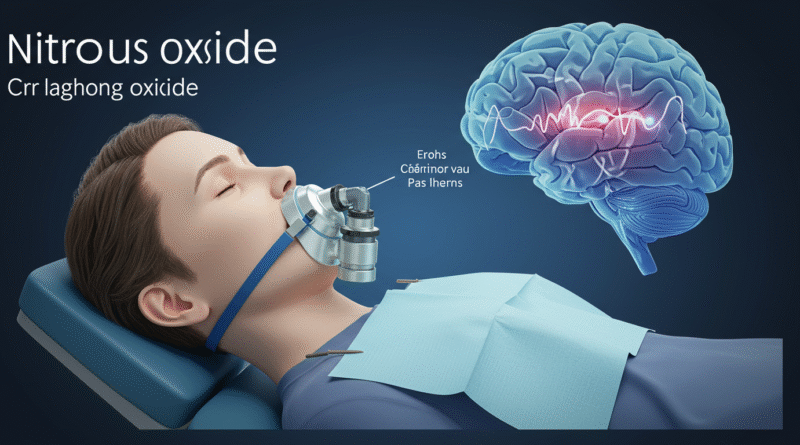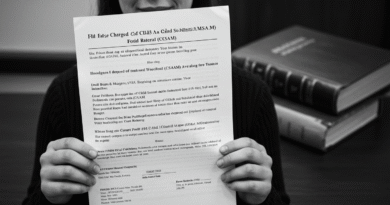Does Laughing Gas Knock You Out? Everything You Need to Know
Let’s Get Real: Does Laughing Gas Knock You Out or What?
Okay, let’s clear the air — literally and figuratively. Ever been to the dentist and they hand you that little nose mask and say, “Just breathe normally…” and within seconds, you’re floating on a cloud of calm? Yep, that’s laughing gas in action.
But wait — does laughing gas knock you out like anesthesia, or is it more like getting buzzed on happiness? It’s a question that’s confused more people than a late-night infomercial. And today, we’re diving deep into the world of nitrous oxide (aka laughing gas) to separate fact from fog.
What Is Laughing Gas and How Does It Work?
Let’s start with the basics. Laughing gas is the nickname for nitrous oxide (N₂O), a colorless, slightly sweet-smelling gas that’s been used for over 150 years — mostly to help people chill out during procedures. It’s commonly used in dentistry, minor surgeries, and even labor and delivery in some countries.
Why “laughing gas”? Because it can make you feel giddy, relaxed, and — you guessed it — giggly.
Does Laughing Gas Actually Knock You Out?
Short answer? Not really. Long answer? It depends.
Laughing gas typically does not knock you out completely like general anesthesia. Instead, it puts you in a twilight zone — you’re still conscious, but super relaxed, maybe a little floaty, and far less anxious. Think of it like being tipsy at a wedding — you know what’s going on, but everything feels soft and funny.
| Effect | Laughing Gas (Nitrous Oxide) |
|---|---|
| Consciousness | Usually remains intact |
| Awareness of surroundings | Reduced, but not eliminated |
| Memory of the event | Often clear, though may feel dream-like |
| Physical sensations | Diminished pain perception |
| Emotional response | Calmer, happier, sometimes giggly |
In some rare cases or higher doses, people might fall asleep — but it’s not the primary goal. Medical professionals carefully control the dose so you stay relaxed without slipping into full unconsciousness.
Laughing Gas vs. Other Sedation Methods
Let’s put laughing gas side-by-side with other forms of sedation so you can see how it stacks up.
| Sedation Type | Level of Sedation | Knocks You Out? | Used For |
|---|---|---|---|
| Laughing Gas | Mild to moderate | No (usually) | Dental procedures, minor surgeries |
| Oral Sedation | Moderate | Sometimes | Anxiety relief before procedures |
| IV Sedation | Moderate to deep | Often | More complex medical or dental surgeries |
| General Anesthesia | Deep | Yes | Major surgeries (you’re fully unconscious) |
As you can see, laughing gas is the least intense and the most flexible. It wears off quickly, doesn’t require a recovery room, and most people can even drive themselves home afterward.
What Does It Feel Like to Be on Laughing Gas?
Everyone reacts a bit differently, but here’s what many people describe:
- A floaty, dream-like sensation
- Light-headedness or tingling in hands and feet
- Fits of giggles (hence the name!)
- A warm, euphoric mental state
- Muffled sounds or tunnel vision
Still awake? Yes. Zoned out and feeling like the world just slowed down? Definitely.
Is Laughing Gas Safe? What Are the Side Effects?
Laughing gas is generally very safe when administered by trained professionals. But as with anything, it has its own set of pros and cons.
Mild Side Effects:
- Dizziness
- Nausea
- Headache
- Sweating or chills
- Confusion (brief)
Avoid If You:
- Are pregnant (especially in the first trimester)
- Have a vitamin B12 deficiency
- Have a history of substance abuse
- Have respiratory issues or middle ear conditions
FAQs About “Does Laughing Gas Knock You Out”
1. Does laughing gas knock you out completely?
Not typically. Laughing gas is designed to relax you, not make you unconscious.
2. How long do the effects of laughing gas last?
Only a few minutes. Once the gas is turned off, it usually wears off in 5 to 10 minutes.
3. Can I drive after getting laughing gas?
Yes — unlike other sedatives, you can usually drive after a short recovery period. Always confirm with your provider.
4. Does everyone feel the same effects from laughing gas?
No. While many feel relaxed and light, some people may experience dizziness or nausea. It depends on your body and dose.
5. Is laughing gas safe for kids?
Yes! Pediatric dentists often use it for nervous children during procedures.
Conclusion: So, Does Laughing Gas Knock You Out?
Here’s the bottom line: laughing gas doesn’t knock you out in the traditional sense. It relaxes you, reduces anxiety, and makes procedures feel much less intimidating — without taking you into full unconsciousness. It’s quick, reversible, and safe when used properly.
So the next time you’re lying back in that dentist’s chair and someone says, “Just a little laughing gas,” you’ll know exactly what’s coming — not a blackout, but maybe a little bliss.
Custom Message:
We hope this guide answered your big question: does laughing gas knock you out? Now you can breathe easy — literally — knowing the facts and feeling confident before your next appointment!



